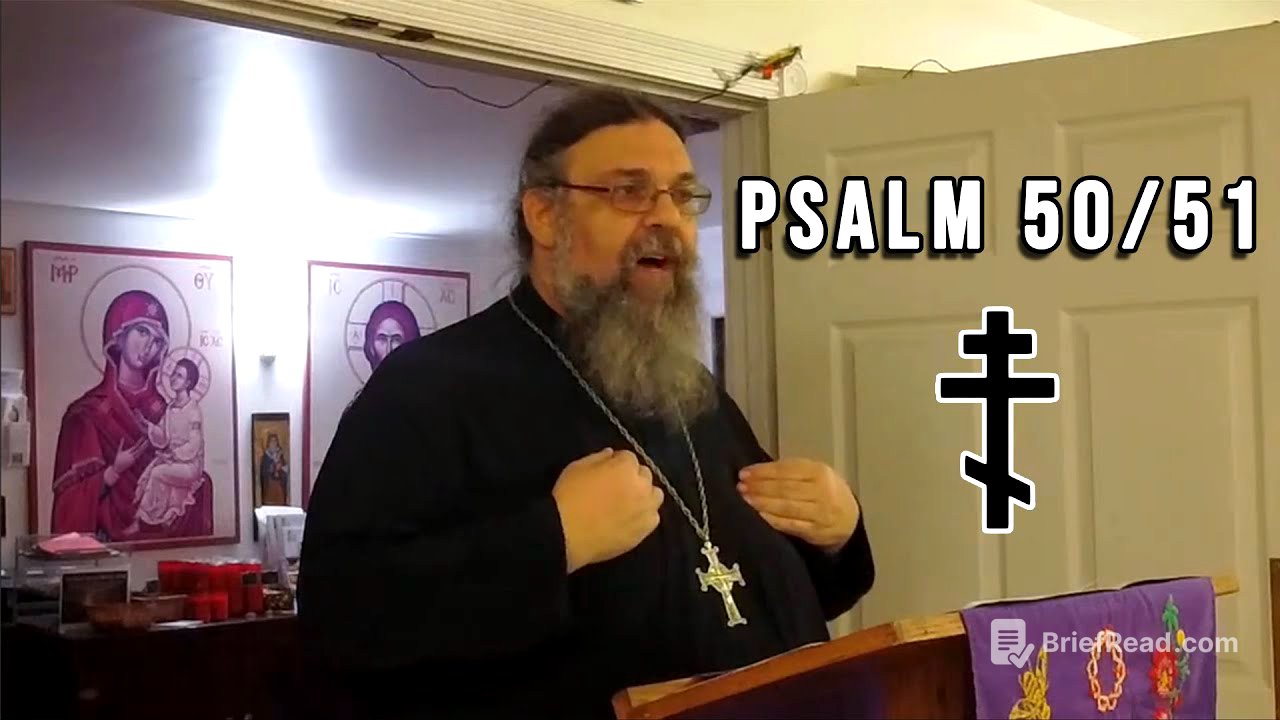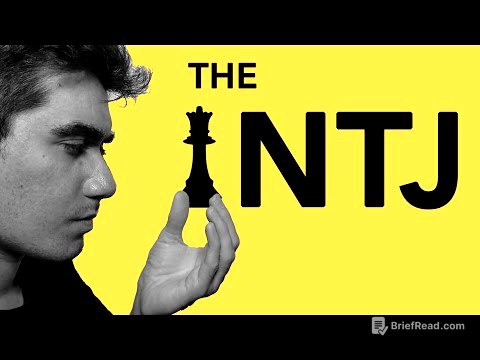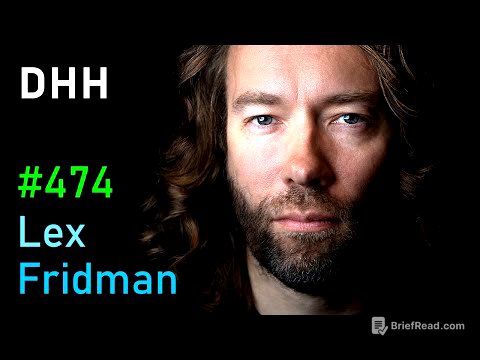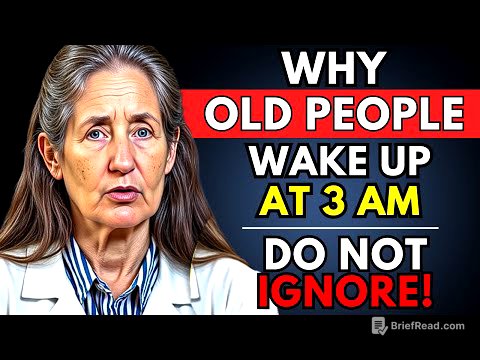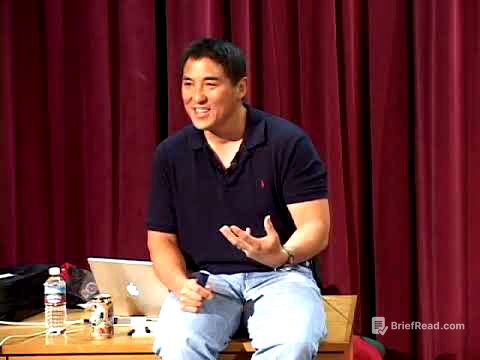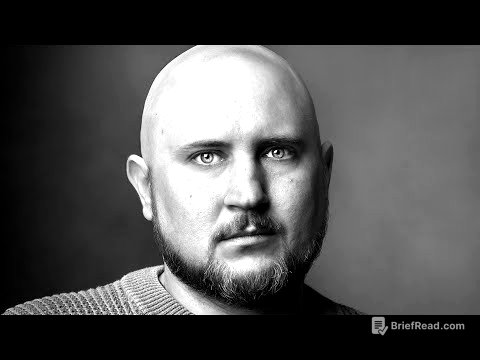TLDR;
This session focuses on spiritual accounting, inspired by monastic practices, and uses Psalm 51 as a guide for daily self-reflection and repentance. It explores King David's sins and his plea for forgiveness, emphasizing the importance of acknowledging transgressions, seeking purification, and restoring one's relationship with God. The discussion highlights the necessity of a contrite heart, reliance on God's grace, and the transformative power of repentance in both individual and communal spiritual lives.
- Spiritual accounting involves daily self-reflection and acknowledging sins.
- Psalm 51 is a guide for seeking forgiveness and purification.
- Repentance requires a contrite heart and reliance on God's grace.
Introduction: Spiritual Accounting and Psalm 51 [0:06]
The session begins with an introduction to spiritual accounting, a practice inspired by monks who review their day each evening to identify sins and give thanks. This practice is framed as essential for self-awareness and recognizing one's actions. Psalm 51 is introduced as a key text for daily reflection and repentance.
Reading of Psalm 51 [1:13]
Anthony reads Psalm 51, a plea for mercy, cleansing, and renewal. The Psalm expresses acknowledgment of transgressions, a desire for purity, and a request for God to restore joy and steadfastness. It also touches on teaching transgressors and praising God's righteousness.
David's Sin: A Spiritual Accounting [3:30]
The narrative shifts to King David's story, using Nathan the prophet's confrontation with David over his sins with Bathsheba and the murder of Uriah as a case study. The passage from 2 Samuel 12 is read, where Nathan confronts David with a parable that reveals David's own injustice.
Analyzing David's Transgressions [6:46]
A detailed spiritual accounting of David's sins is conducted, referencing 2 Samuel 11 to identify the commandments David broke, including coveting, adultery, murder, lying, and dishonoring God. The discussion covers David's initial lust, his attempts to cover up his adultery, and his orchestration of Uriah's death.
The Depth of David's Sin and Its Consequences [12:20]
The analysis continues, highlighting David's pride, his manipulation of others into sin, and his jealousy. Uriah's honorable character is contrasted with David's actions. The discussion also touches on David's dishonoring of God, his men, and the throne, as well as his attempt to hide his sins from God.
Psalm 51: A Plea for Mercy and Cleansing [20:13]
Returning to Psalm 51, the session examines the Psalm's verses in detail. It starts with David's plea for mercy and loving-kindness, interpreting "tender mercies" as compassion akin to a child in the womb. The meaning of "blot out" is discussed as wiping out transgressions.
Understanding Sin, Iniquity, and Transgression [22:59]
The meanings of sin (missing the mark), iniquity (twistedness and depravity), and transgression (crossing boundaries) are explored. David's acknowledgment of his sins and their constant presence before him is emphasized, highlighting his personal conviction and acceptance of responsibility.
Confession and God's Justice [26:13]
The discussion centers on David's confession as a means to glorify God and confirm His justice. It's noted that David's sin was primarily against God, and his confession aimed to restore moral standing to glorify God, not himself.
The Sinful Nature and the Desire for Truth [28:00]
The session addresses the concept of inherent sinfulness, referencing the idea of original sin passed through generations. It emphasizes God's desire for truth in the inward parts and the hidden parts, highlighting the need for a transformation that goes beyond superficial reform.
Purification and Cleansing [30:31]
The importance of purging oneself completely of sin and seeking moral and ceremonial cleanliness is discussed. The use of hyssop in purification rituals is mentioned, symbolizing the atoning sacrifice. The transformative forgiveness offered by God is highlighted, emphasizing the restoration of purity.
Joy, Gladness, and Restoration [33:36]
The session explores the desire for joy and gladness after experiencing the brokenness of sin. It emphasizes that for Orthodox Christians, brokenness can lead to repair and redemption. The need to move forward and the importance of faith in God's ability to cleanse and renew are underscored.
A New Heart and a Steadfast Spirit [35:07]
The discussion focuses on the plea for a clean heart and a steadfast spirit, emphasizing that only God can create a new heart and make one brand new. The importance of relying on God for strength and guidance is highlighted, contrasting it with self-reliance.
Reliance on God and the Joy of Salvation [38:18]
The session emphasizes the ongoing reliance on God and the desire for the joy of salvation. It notes that unconfessed sin can lead to numbness and a deterioration of relationships. The importance of seeking God's salvation and upholding oneself with a generous spirit is underscored.
Teaching Transgressors and Singing God's Righteousness [40:28]
The discussion touches on the desire to teach transgressors and the importance of confessing sins to sing aloud of God's righteousness. The session notes that months of unconfessed sin can silence true praise.
Praising God and the Broken Spirit [42:22]
The session emphasizes praising God for His qualities, deeds, and attributes. It highlights that God desires a broken spirit and a contrite heart, not just sacrifices. The importance of preparing for Eucharist with a contrite heart is underscored.
Restoration and Community [44:34]
The discussion focuses on restoring favor to the kingdom and the importance of addressing heart issues. It emphasizes that true repentance leads to a renewal of both the individual and the community. The session concludes by highlighting the importance of spiritual accounting and seeking God's change during Lent.
Spiritual Amnesia and Confrontation [49:03]
The session reflects on why David didn't initially recognize his sin, attributing it to "spiritual amnesia." It highlights the role of Nathan, David's spiritual father, in confronting him. The session concludes by emphasizing the importance of daily spiritual accounting and seeking God's cleansing.
Final Thoughts and Blessings [52:09]
The session concludes with final thoughts, blessings, and a reminder of the importance of seeking God's change during Lent.
